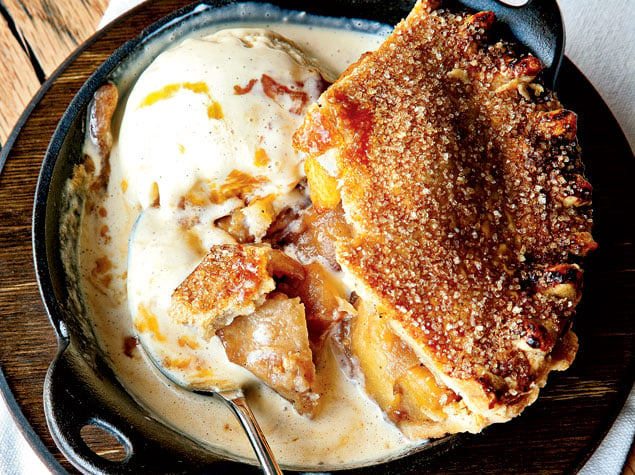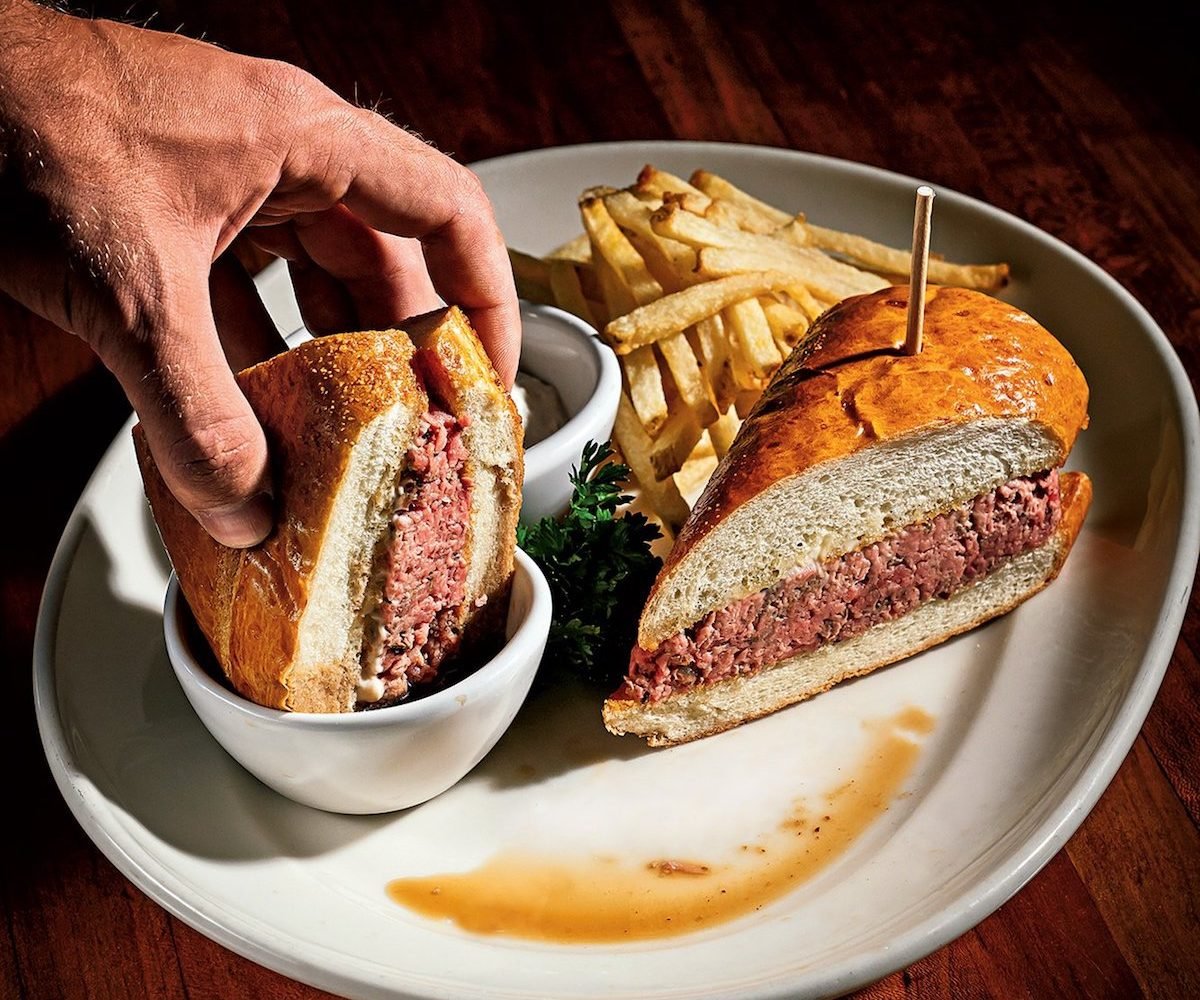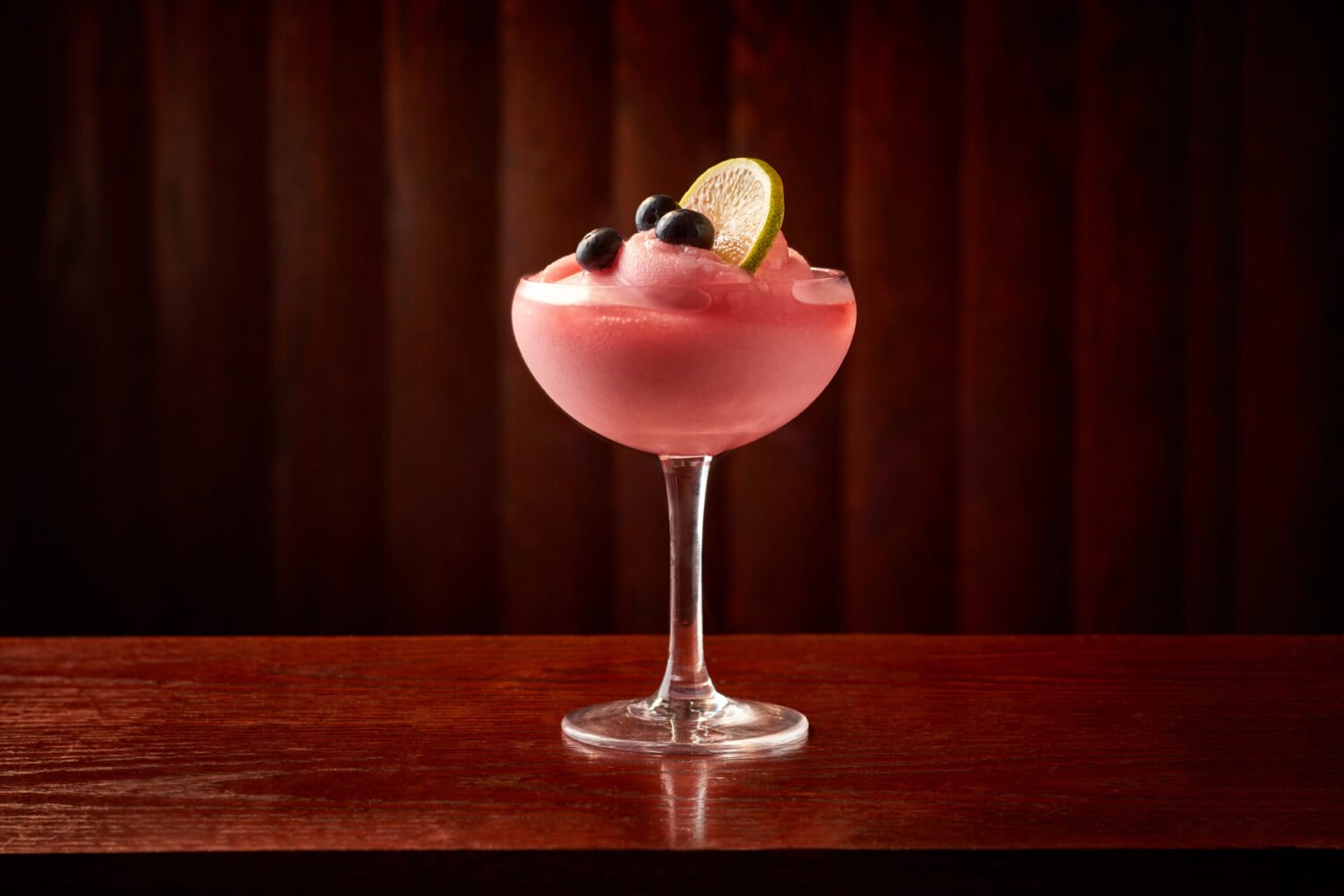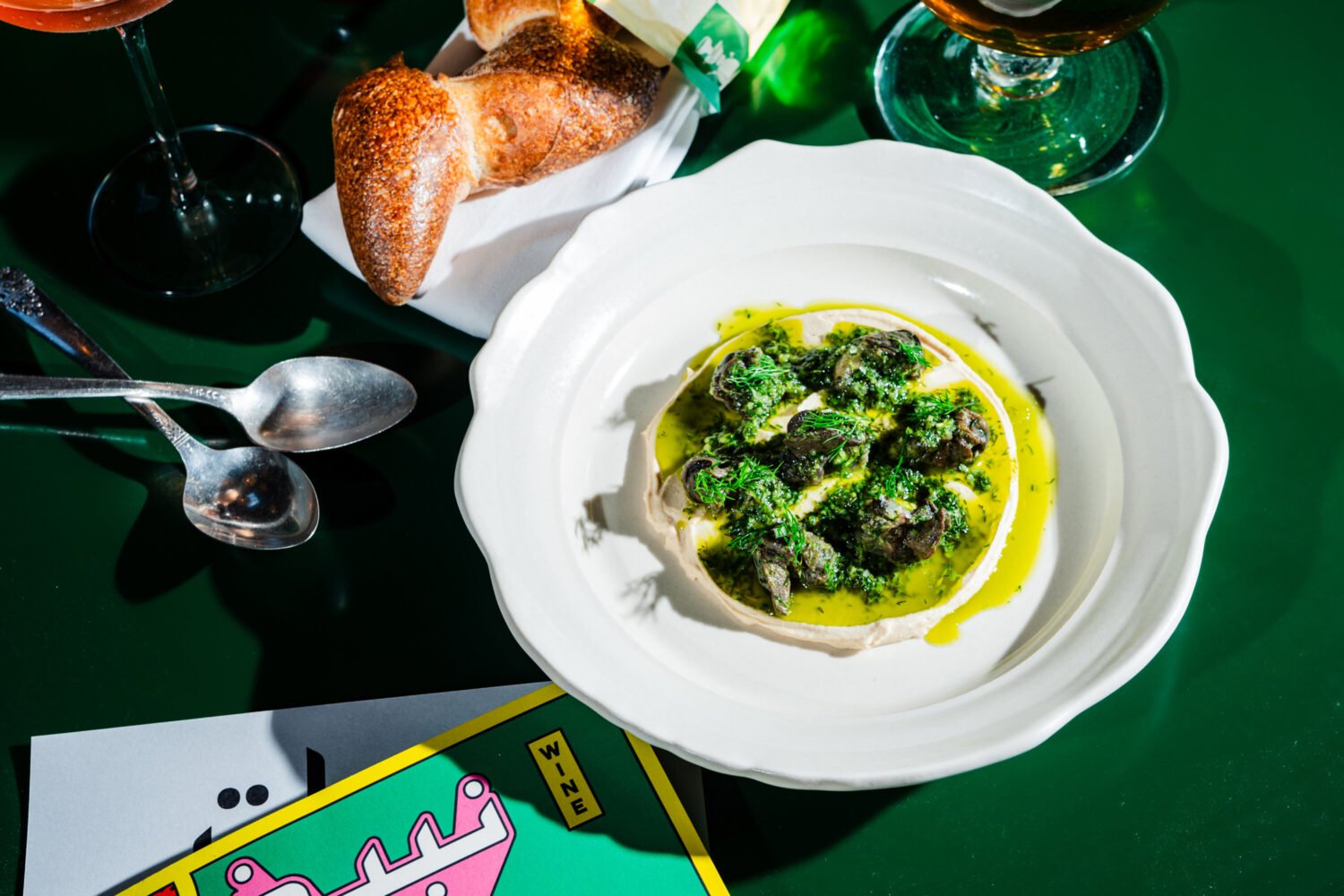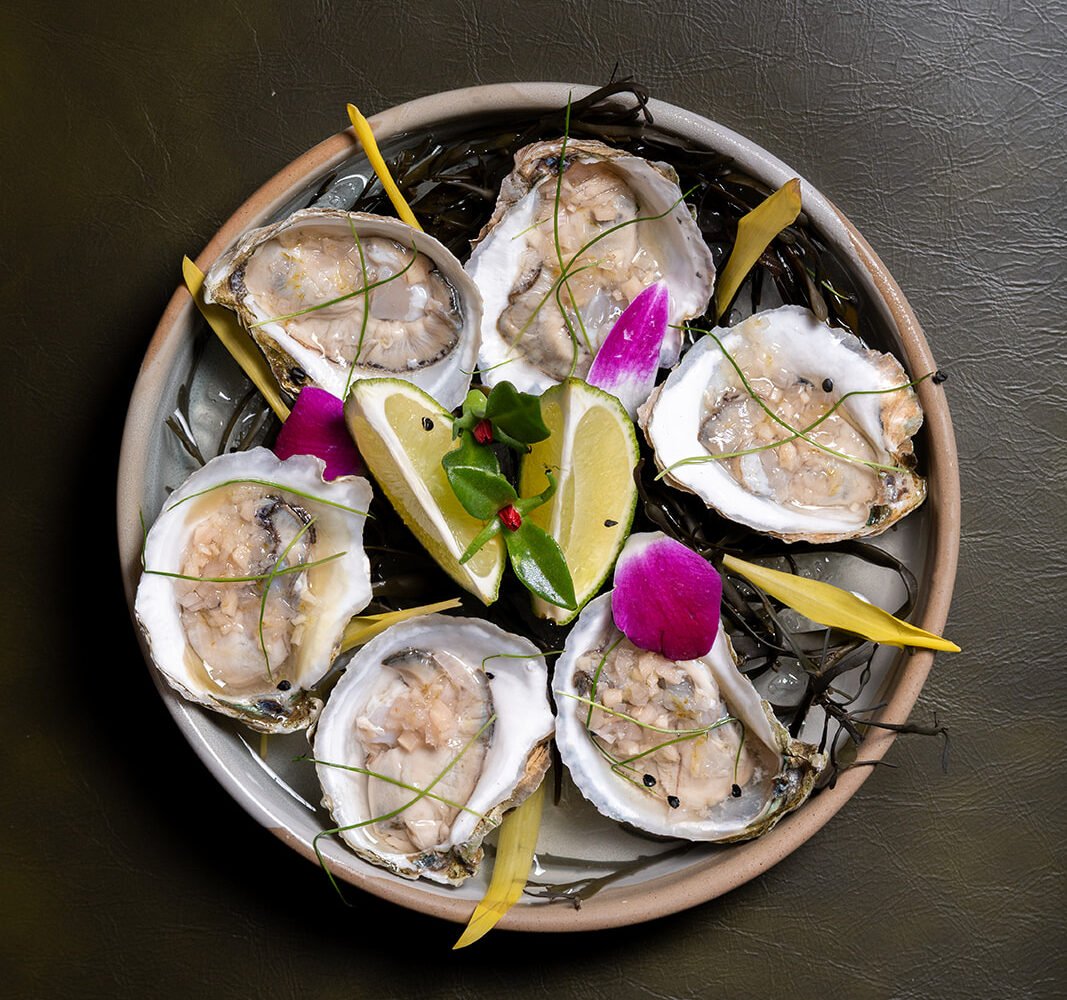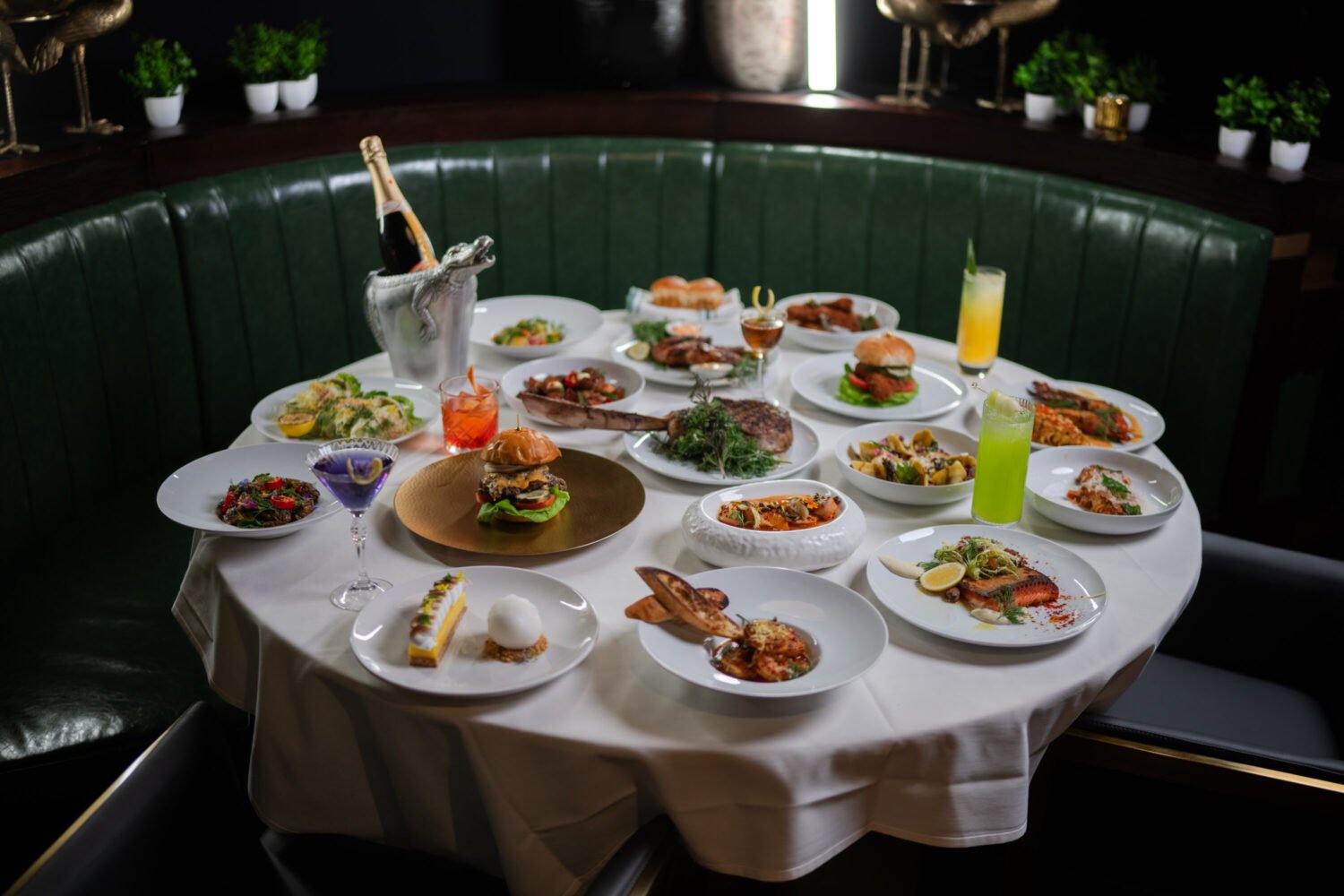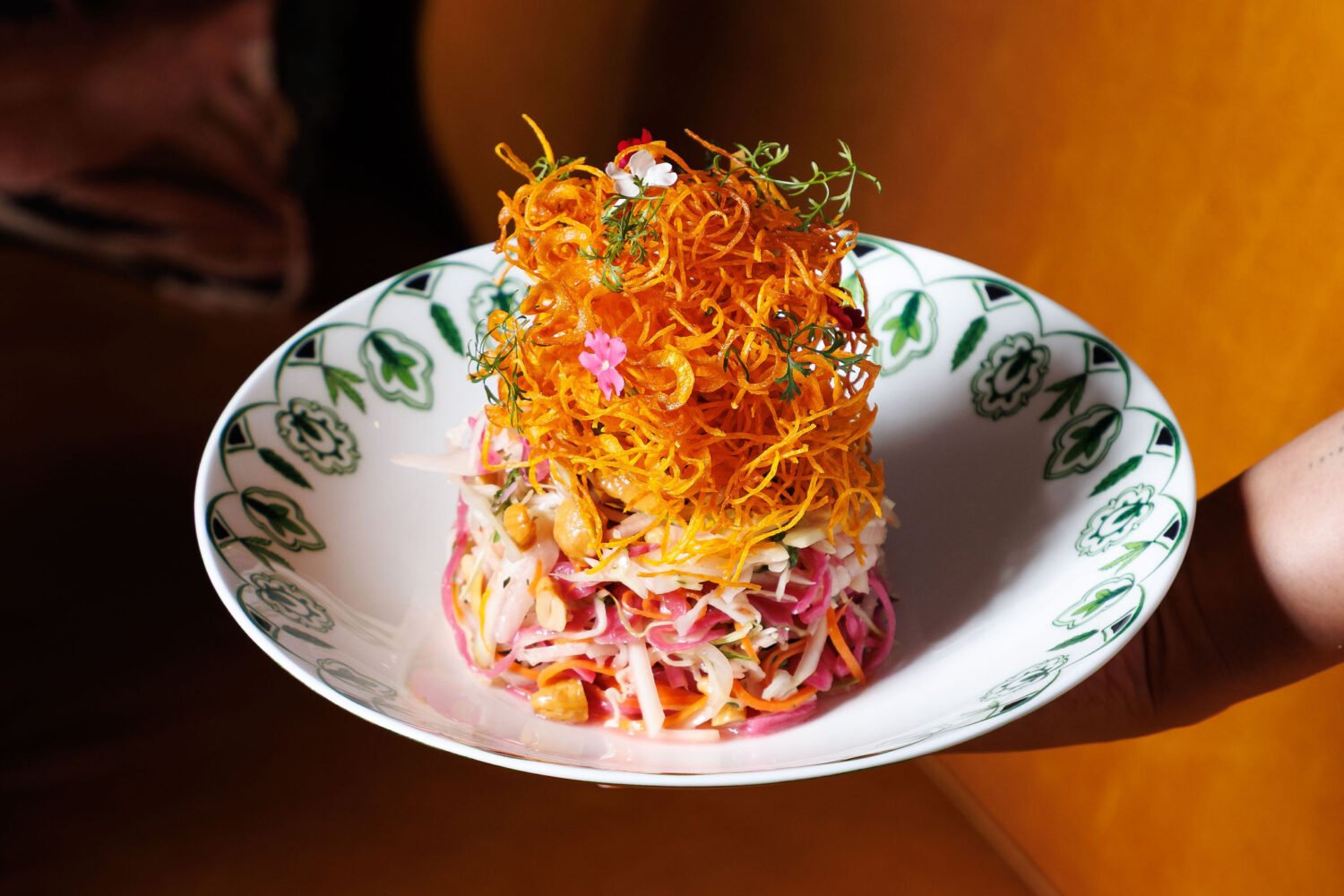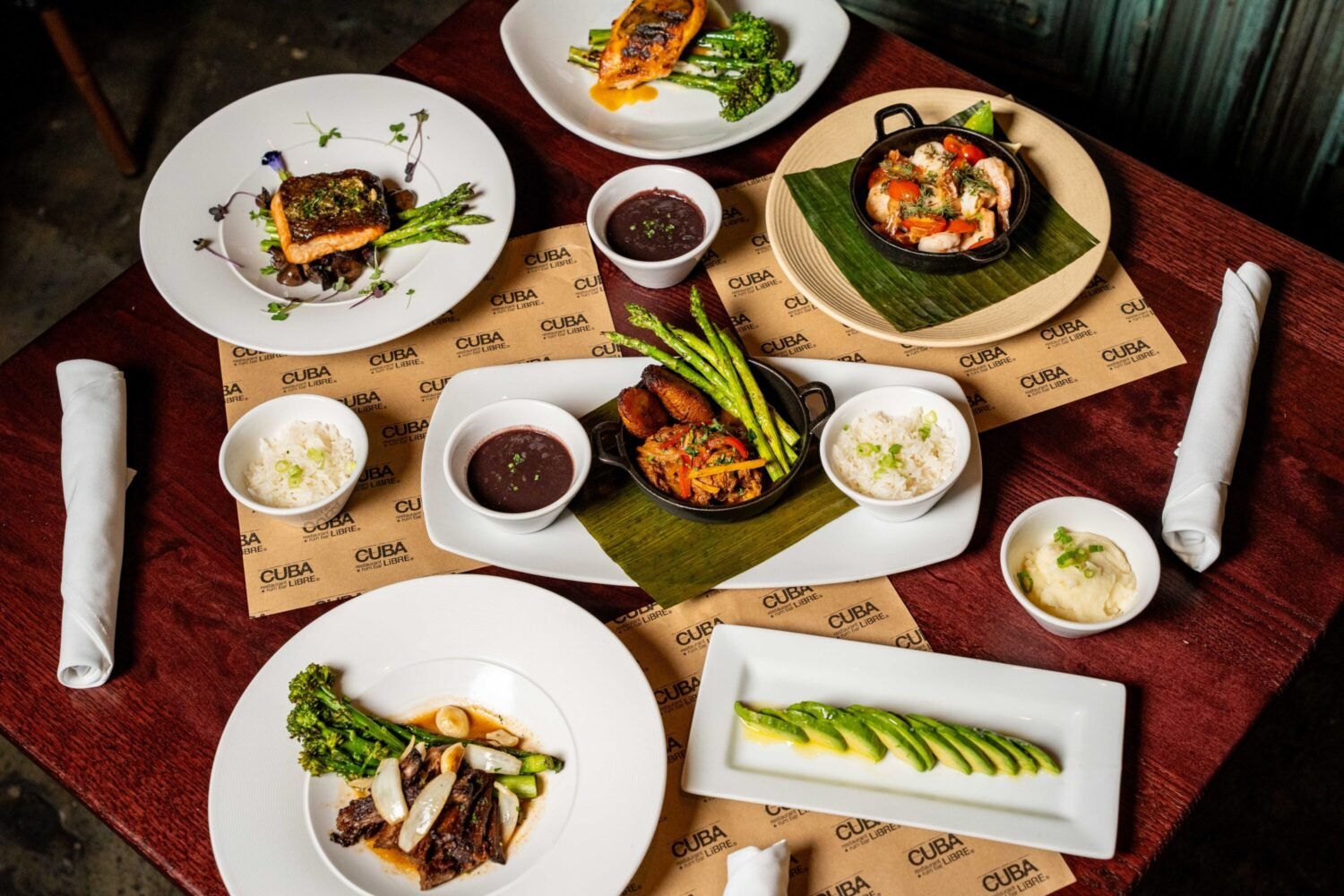Two decades ago, not long after taking over as owner of Perry’s in DC’s Adams Morgan, Saied Azali began dreaming about his next project. This new restaurant wouldn’t be in the city; it would be in the country. No DJ and no pounding music–one club was enough–but a simple place, a neighborhood spot that would feed diners’ souls as well as their appetites.
One day it came to him: a wood-burning grill in the hills of West Virginia.
It was, admittedly, a crazy vision for a partying urbanite whose restaurant was known for its drag brunches, but Azali has always possessed the immigrant’s belief that America is the land of the possible and that boundaries exist to be smudged if not smashed. Besides, he regarded himself as something of a son of the South, having spent his formative US years in North Carolina, where he studied at Guilford College after emigrating from Iran, and then at the University of North Carolina, where he pursued a master’s in biochemistry before Catholic University came through with a scholarship and he moved to DC. By then, the South had left its imprint. He liked its pace, its people, and especially its music–the twangy, heartfelt sounds of bluegrass and country.
The dream withered as other projects presented themselves over the years, including most recently a restaurant in DC’s Logan Circle–the ill-fated Viridian, which Azali launched several years before the 14th Street boom. Mintwood Place now revives that long-ago fantasy, with one difference: Azali hasn’t opened in the hills of West Virginia–he has ventured all of ten feet and become his own neighbor on Columbia Road.
But Azali has worked hard to bring the country to the city. The warm light puts you in mind of a hearth-lit cabin. The bar, the tables, and the booths are fashioned from repurposed wood. The yearning sounds of John Denver fill the air along with the smell of smoke from the wood-burning grill. I don’t know which is more unlikely, the sight of iPhone-toting politicos conferring at the bar at day’s end or the fact that Azali has redeemed the cliché of rustic chic–the latest fashion for restaurateurs bent on imbuing their urban settings with warmth and soul. Here I sense more sincerity than shtick.
Azali might have made good on his dream of a Southern kitchen if he hadn’t landed Cedric Maupillier, a former chef at Central Michel Richard (he led the kitchen when it won a James Beard Award), where he executed the master’s exuberant vision–a cuisine that married the hearty comforts of French bistro cooking and the junk-food indulgences of our fast-food nation–with aplomb.
Much of the menu at Mintwood Place invokes the giddy spirit of a mixmaster DJ who layers related but disparate sounds atop one another to create new sonic textures. Rather than dousing escargots in butter and garlic, Maupillier pries them from their shells and bakes them into hushpuppies. Tiny frog’s legs are pan-fried and set alongside a romesco that whips garlic, nuts, and olive oil into a robust paste. Lamb tongue, which in the current fashion you tend to see sliced thin and served with something pickled, is cut thick and partnered with eggplant in a cinnamon-laced moussaka.
This kind of thing goes a long way, but Maupillier knows when to take his tongue out of his cheek. Grilled salmon and lentils, a virtual copy of the Central original, is a reminder of the satisfactions of old-school French cooking. Another dish from the Central repertoire is the flammekueche. He presents the Alsatian tart in a cast-iron pan, its cracker-like crust strewn with bits of bacon and sweet onion.
The best of the play-it-straight dishes was a glorious cassoulet, a bread-crumb-topped crock of chicken sausage, lamb shoulder, duck confit, and white beans that had been cooked for hours in duck fat. I needed a full glass of wine to process its salty, mouth-coating intensity, but this was hardly an imposition.
I appreciated our waiter’s offer of a taste of a Syrah I’d been eyeing–he not only brought the bottle out but made sure I enjoyed it. He’s part of a young staff that, beyond being approachable and knowledgeable, appears genuinely concerned with your happiness. I like how opinionated the servers are, the way they’ll subtly divert you from a dish or drink you were considering by lighting up with enthusiasm for something else.
That’s how I came to order the skate, a fish that’s often overcooked (it can go from moist to dry in a flash) or subtly ammoniated. Here the accordion-like filet, pan-seared and blanketed with capers and brown butter, flakes easily into tender bands of meat. Both of the dish’s enhancements, a zesty eggplant caponata and a lacy chickpea pancake, could do solo duty.
As great as the skate is, the fish I’d order every time is the boneless whole dorade with Picholine olives and braised fennel. Less exciting, perhaps, than more highly conceptualized dishes, it’s exactly the sort of thing to zero in on at a restaurant with a technician like Maupillier in the kitchen.
Dawn Swaney, who was Maupillier’s sous chef at Central, reprises that role here; the great consistency of the cooking can be traced in large part to the chemistry and camaraderie they’ve forged over five years. Many restaurants spurt to a fast start, but after a few months, unevenness takes hold. I think Mintwood Place survives that dip, so long as Maupillier and Swaney are there.
Swaney also does the desserts: Key-lime pie, brownie sundae, baked Alaska (doused with Chartreuse and lit), apple pie in a cast-iron skillet. Given the Gallic thrust of everything else, the all-American focus in the sweets is incongruous, to say nothing of the fact that one of the great pleasures of going to a bistro is the prospect of a pear tart or a floating island. Stranger still is that there’s no tweaking of tradition, no playful indulgence.
That’s not to say I didn’t like the brownie sundae, a slightly less gooey version of what you often find. And I’ll confess to letting out a moan over the apple pie, three inches tall and capped with a perfect crust. It’s such a Platonic ideal of apple pie that it becomes an emblem. It’d be hard to be more patriotic if you were flying a flag over your table.
Digging into the cast-iron skillet while listening to the strains of “Thank God I’m a Country Boy,” I imagined that this is what Azali envisioned 20 years ago–a heartfelt paean to his adopted country. That dream didn’t die. It was folded into the sophisticated soufflé that Azali has made rise in Adams Morgan, in which France and America, tradition and innovation, urbanity and rusticity are whipped together into something that feels exciting and new.
This article appears in the May 2012 issue of The Washingtonian.

